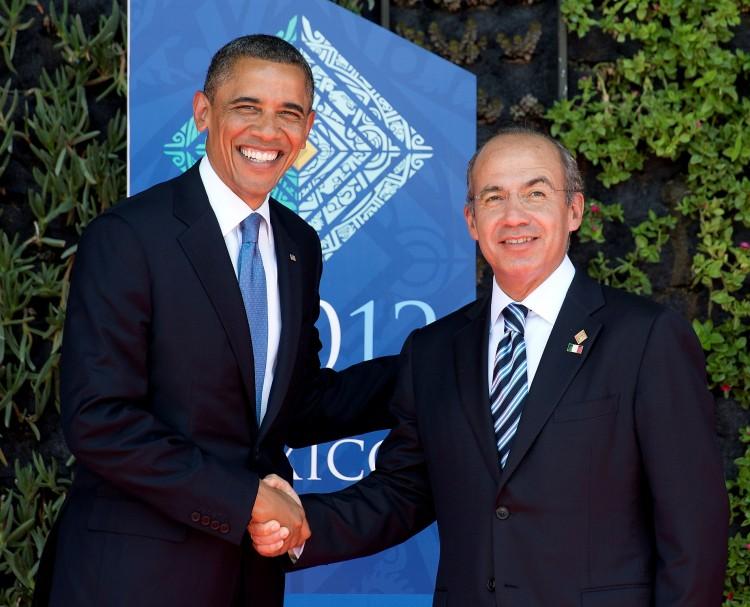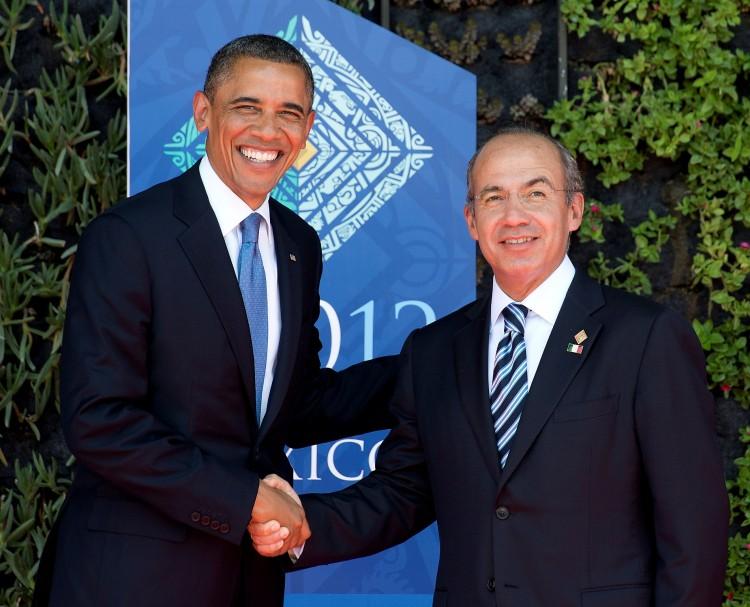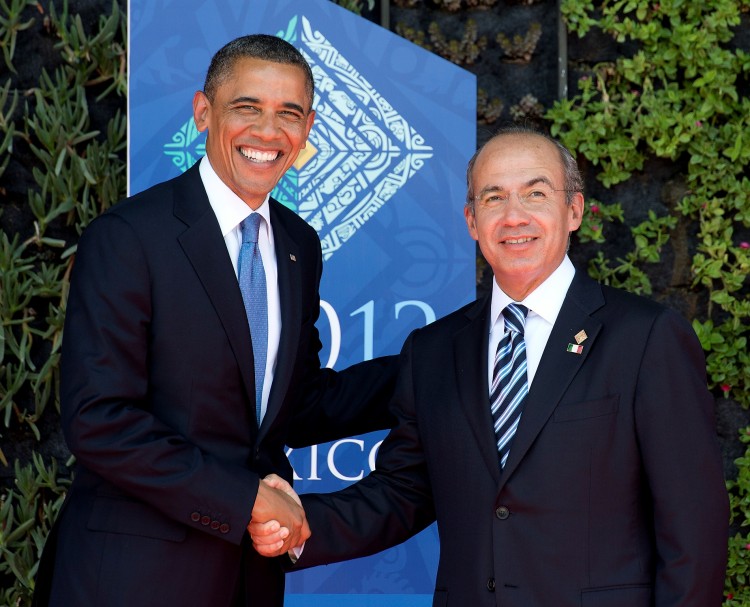President Barack Obama and Russian President Vladimir Putin endeavored to ease relationship tensions at the G-20 summit Monday, and find common ground in agreement on a political transition for Syria.
The bilateral meeting, which went for two hours and longer than scheduled, was the first between the two since Putin’s contentious elections earlier in the year. President Obama had delayed calling Putin to congratulate him on winning the election following reports of vote rigging and violence against protesters. Putin, in turn, had refused to attend the G-8 meetings held last month at Camp David.
In a joint press conference, President Obama described their discussion as “a candid, thoughtful” conversation. He highlighted the agreement on Syria.
“We agreed that we need to see a cessation of the violence, that a political process has to be created to prevent civil war, and the kind of horrific deaths that we’ve seen over the last several weeks, and we pledged to work with other international actors, including the United Nations, Kofi Annan, and all interested parties in trying to find a resolution to this problem,” Obama said.
Obama thanked Putin for Russia’s support in allowing supply lines into Northern Afghanistan through Russian territory; and President Putin thanked Obama for American support of Russia’s entry into the World Trade Organization.
“From my perspective, we’ve been able to find many commonalities pertaining to all of those issues,” Putin said at the press conference.
Syria “has been a point of difference” between the United States and Russia, said Ben Rhodes, national security adviser to the White House, at a briefing prior to the G-20. Russia has continued to sell arms to Syria and, along with China, has blocked United Nations Security Council resolutions preventing sanctions.
“Obviously the United States believes that President Assad would need to step down as a part of that transition,” said Rhodes.
Obama noted that there were still differences between the two countries. “We agreed that we need to build on these successes, even as we recognize that there are going to be areas of disagreement, and that we can find constructive ways to manage through any bilateral tensions.”
A joint statement released after the meeting highlighted some of the areas that had been discussed during the meeting including building trade and economic engagement, nuclear security, regional conflicts, counterterrorism, and counternarcotics.
Europe a Problem
Following the meeting with Putin, President Obama was due to move into G-20 sessions, with all eyes expected to be on Europe.
According to James Haley of the Ontario-based Center for International Governance Innovation, the most worrying issues facing the G-20 are “deterioration in eurozone growth prospects and the heightened risk of a European banking failure.”
While elections in Greece over the weekend delivered a win to pro-eurozone parties, Haley does not have high expectations that the G-20 summit can forge a path of action.
European leaders have their own summit planned later this month, he said in a Council of Foreign Relations forum on the G-20 summit. “They will argue that the eurozone is an internal European crisis that should be solved internally.”
While the rhetoric coming from G-20 leaders on Europe is likely to be strong, Haley expects the G-20 meeting will result in a communiqué that is long on specifics, but short on “concrete measures” to address the crisis.
The G-20 sessions will continue throughout the day on Tuesday.
The Epoch Times publishes in 35 countries and in 19 languages. Subscribe to our e-newsletter.






